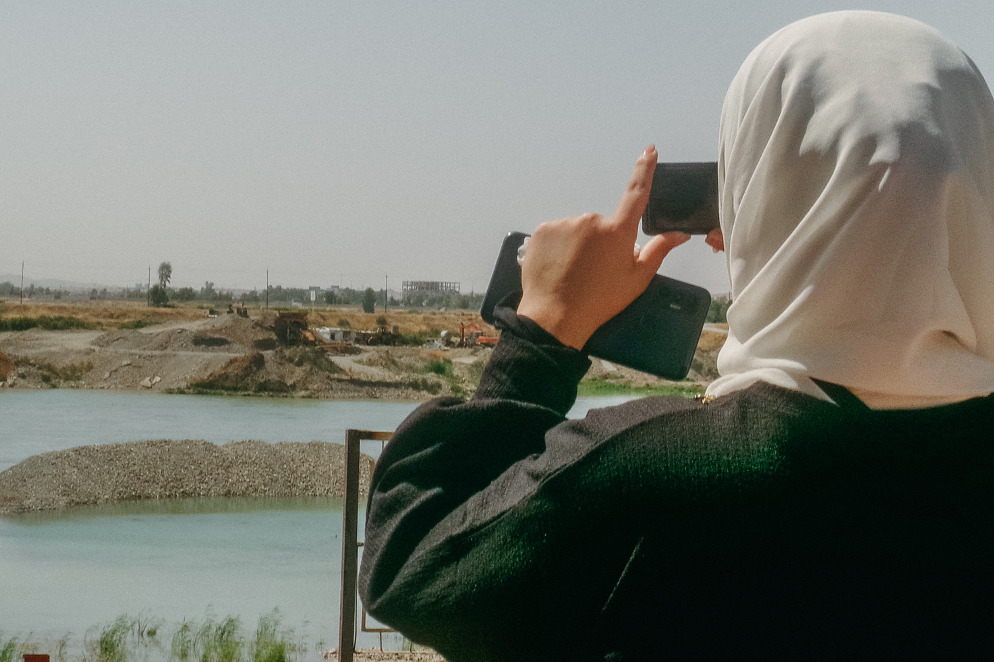The war with ISIL displaced some 5 million Iraqis within the country, many under the age of 18. While to date most internally displaced persons (IDPs) have returned home, one group has faced specific challenges due to the perception of their affiliation with ISIL, often due to the association of a family member. Additionally, there are tens of thousands of Iraqis – many of them children – languishing in camps in Northeast Syria, who are trying to return home. Notably, the situation in the Al-Hol camp in Northeast Syria (where over half of the estimated 56,000 inhabitants are children, many of them Iraqi) is nothing short of appalling with its overcrowding, insecurity, and lack of basic services. While the Iraqi government has begun to repatriate some Iraqi families from Syria, the road home is fraught with challenges and hardships, particularly for young people who have no documentation, have lost formative years of schooling, and have endured a life marred by insecurity. Even when there is no border crossing involved, IDPs with perceived ISIL affiliation face many of the same difficulties in returning to their communities and restarting their lives.
There is currently significant programmatic and research attention on the return and reintegration of Iraqis, particularly children, coming back home after being displaced internally or from Syria. Yet, existing efforts to assess youth reintegration challenges remain largely extractive and tokenistic, with limited engagement through which young people’s experiences and needs are interpreted by adult researchers and practitioners. Recognizing the pressing need to shift the paradigm of how the international community supports conflict-affected young people, UNIDIR, alongside UNICEF, War Child UK, Bridge, 100cameras, IOM, and Progress in Peace launched a groundbreaking initiative to amplify the voices of returning youth and cogenerate action research to inform programmatic interventions meant to address the unique reintegration needs and aspirations of returning Iraqi youth.
This event will introduce two innovative pilot studies that engaged Iraqi youth as partners in action research and feature an exhibit of photographs created by them. The first component will showcase a professional qualitative training programme for youth researchers in Mosul with the goal of co-facilitating research with its graduates. Several of the research themes explored in this training were also the subject of a participatory photography intervention by 100cameras in Mosul. This transformative program equipped youth with photography skills, enabling them to process their experiences and share their stories through images. The event will exhibit the photographs taken by conflict-affected youth in Mosul, providing a unique visual narrative that embodies their struggles, hopes, and aspirations.
Ultimately, the goal of the event is twofold: to advance efforts to empower young people as active agents and partners in peacebuilding efforts and to offer peacebuilders practical guidance on how to adapt these (not tokenistic) youth-inclusion approaches into programming cycles for post-conflict reintegration and recovery in other contexts.
WHEN & WHERE
1 November, 2023, 15:00 – 16:30 CET | GCSP– 5th floor (PÉTALE 4), and Online
This event is organised as part of Geneva Peace Week, under the thematic track Promoting Peaceful and Inclusive Societies.
SPEAKERS
- Idriss El Alaoui Talibi, Vice-President at the Peacebuilding Initiative, Peacebuilding Initiative, Geneva Graduate Institute
- Siobhan O’Neil, Head of Project, Managing Exits from Armed Group (MEAC), United Nations Institute for Disarmament Research (UNIDIR)
- Schadi Soraya Semnani, Iraq Study Coordinator, Managing Exits from Armed Group (MEAC), United Nations Institute for Disarmament Research (UNIDIR)
- Angela Francine Popplewell, Co-Founder, CEO, 100Cameras
- Samer Zebary, Founder, Progress in Peace
- Sophie Bray-Watkins, Youth Advocacy and Participation Adviser, War Child UK
